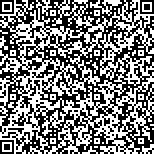|
|
|
| |
|
|
| 本文已被:浏览 979次 下载 595次 |

码上扫一扫! |
|
|
| 炮制与配伍对干姜-五味子药对11种成分含量和指纹图谱的影响 |
|
苏敏1,2, 江瑜1,2, 范兰兰1,2, 汪小莉2, 洪燕2, 吴德玲2, 韩燕全1
|
|
1.安徽中医药大学第一附属医院, 国家中医药管理局中药制剂三级实验室/中药复方安徽省重点实验室/现代药物制剂安徽省工程技术中心, 合肥 230601;2.安徽中医药大学, 合肥 230031
|
|
| 摘要: |
| [目的] 建立干姜-五味子药对11种成分含量测定和指纹图谱方法,明确炮制-配伍对药对成分含量和指纹图谱的影响。[方法] 将不同产地的干姜采用砂烫法炮制为炮姜,干姜、炮姜分别与五味子配伍成药对。采用UPLC法测定样品中11种指标性成分的含量,分析其指纹图谱的相似性;通过聚类分析及主成分分析研究药对之间的差异性。[结果] 炮制前后干姜-五味子药对与炮姜-五味子药对成分含量差异较大,通过炮制以后药对中共有5种成分的含量表现为升高,5种成分含量为降低,并且在干姜-五味子药对中未检出8-姜烯酚;UPLC指纹图谱共匹配出26个共有峰,共有峰的相似度较好,均大于0.94;聚类分析及主成分分析表明干姜-五味子和炮姜-五味子药对可被明显区分。[结论] 炮制-配伍对干姜-五味子药对的指标成分含量和指纹图谱均有不同程度的影响。 |
| 关键词: 炮制-配伍 干姜-五味子药对 UPLC 含量测定 指纹图谱 |
| DOI:10.11656/j.issn.1673-9043.2021.04.22 |
| 分类号:R283 |
| 基金项目:国家重点研发计划资助项目(2018YFC1707004);浙江中医药大学省重点建设高校优势特色学科(中药学)开放基金项目(ZYAOXZD2019005);安徽省高校优秀青年骨干人才出国访学研修项目(gxgwfx2018043)。 |
|
| Effects of processing and compatibility on the content of 11 components and fingerprints of dried ginger-schisandra |
|
SU Min1,2, JIANG Yu1,2, FAN Lanlan1,2, WANG Xiaoli2, HONG Yan2, WU Deling2, HAN Yanquan1
|
|
1.The First Affiliated Hospital of Anhui University of Traditional Chinese Medicine, Grade Three-level Laboratory of Traditional Chinese Medicine Preparation/Anhui Province Key Laboratory of Chinese Medicinal Formula/AnHui Engineering Technology Research Center of Modernized Pharmaceutics, Hefei 230601, China;2.Anhui University of Chinese Medicine, Hefei 230031, China
|
| Abstract: |
| [Objective] Establish the method for determining the content of 11 components and the fingerprint of dried ginger-schisandra, and clarify the influence of the processing-compatibility on the content of the components and the fingerprint of the medicine. [Methods] Dried ginger from different origins was processed into pao ginger by the sand blanching method, the dry ginger and pao ginger are respectively compatible with Schisandra. The UPLC method was used to determine the contents of 11 index components in the samples and analyze the similarity of their fingerprints; cluster analysis and principal component analysis were used to study the differences between drug pairs. [Results] Before and after processing, the content of dried ginger-schisandra medicine pair and the medicine pair of schisandra was quite different. After processing, the content of 5 components in the medicine pair increased, the content of 5 components decreased, and the No. 8-gingerol in dried ginger was detected in the schisandra drug pair; UPLC fingerprints matched a total of 26 common peaks, and the similarity of the common peaks was good, all greater than 0. 94; Cluster analysis and principal component analysis showed that dried ginger-schisandra and pao ginger-schisandra medicine pair can be clearly distinguished. [Conclusion] The UPLC showed that processing and compatibility have different degrees of influence on the index components and fingerprints of the dried ginger-schisandra medicine pair. |
| Key words: processing-compatibility dried ginger-schisandra medicine pair UPLC content determination fingerprint |
|
|
|
|
